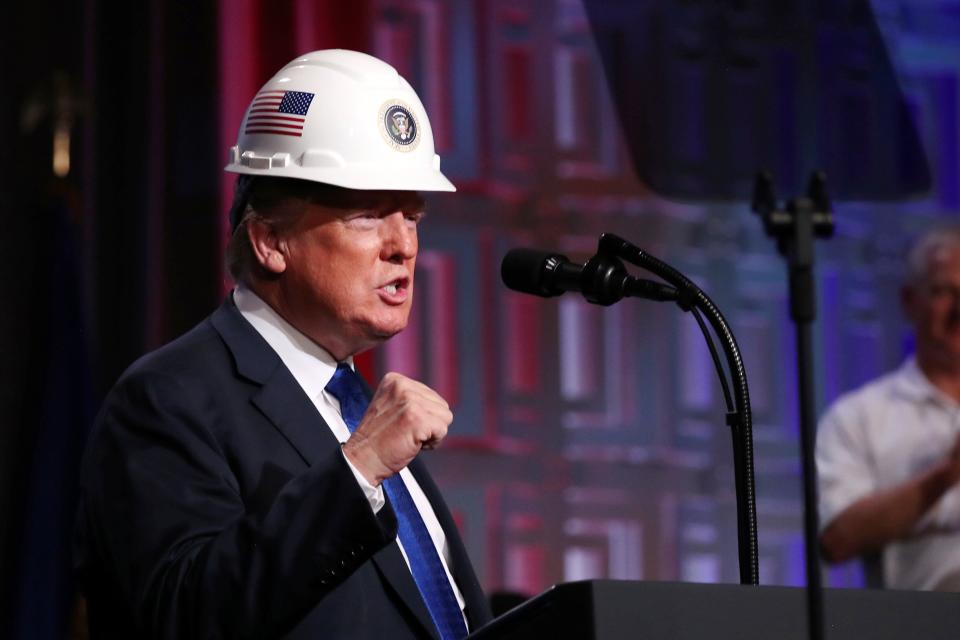Trump Promised A Break With GOP Trickle-Down Economics. He Delivered More Of The Same.

When Donald Trump took the stage in Cleveland to accept the 2016 Republican presidential nomination, he sounded different from the party’s traditional, business-friendly standard-bearers.
“I have visited the laid-off factory workers and the communities crushed by our horrible and unfair trade deals. These are the forgotten men and women of our country. People who work hard but no longer have a voice,” he declared. “I am your voice.”
The rhetorical flourish was the culmination of a campaign in which Trump took pleasure in shredding the tenets of the wealthy-first, trickle-down economics that have dominated the GOP since Ronald Reagan’s presidency.
Trump built his presidential run, first and foremost, on anti-immigrant demagoguery of the kind eschewed by his party’s Chamber of Commerce wing. But he also flouted long-standing conservative economic orthodoxies in ways that angered conservatives and inspired a mixture of ideological intrigue and political fear in some liberals.
He trashed free-trade agreements that have been the bane of the organized labor movement since the early 1990s, promising to shelve an existing accord and renegotiate others in an effort to revive domestic manufacturing. He vowed to defend Social Security, Medicare and Medicaid from any cuts; empower Medicare to negotiate bulk rates on prescription drugs; repeal the Affordable Care Act while providing universal coverage through other means; and pass an infrastructure bill twice the size of what his then-Democratic rival, Hillary Clinton, was proposing. He mocked the country’s pay-to-play campaign finance system and the low tax rate paid by the “paper pushers” who run hedge funds.
Some of the swing voters Trump needed to win apparently took notice. A lower percentage of voters viewed him as “conservative” than any of his immediate Republican predecessors in the White House.
Trump became a real Republican at the very worst time ― a time when Republican orthodoxy could...


